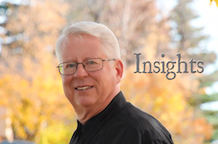 A rush of Luther-adulation washed over me as my partner Marlene and I stood—less than a decade ago—before the refurbished doors of the Castle Church in Wittenberg, Germany, and again as we visited a tower room at the Wartburg Castle, in the town of Eisenach, about 265 kilometres away. What could have caused such an emotional high for me?
A rush of Luther-adulation washed over me as my partner Marlene and I stood—less than a decade ago—before the refurbished doors of the Castle Church in Wittenberg, Germany, and again as we visited a tower room at the Wartburg Castle, in the town of Eisenach, about 265 kilometres away. What could have caused such an emotional high for me?
At the first location, on October 31, 1517, biblical scholar Martin Luther posted his 95 Theses (strong arguments against the sale of certificates that forgave sins by the Roman Catholic Church of his day.) At the second, Luther—living under the protection of his German prince shortly thereafter—translated the New Testament into the vernacular.
In a nutshell, these seemingly inconspicuous activities in an imperial backwater mushroomed into Luther’s designation as the father of the Protestant Reformation. Five hundred years later, many still view him as the right man at the right time for changing not only the course of religious history, but also a protagonist for human cultural and political development.
From the time of my early training in Sunday school and confirmation, through my preparatory years to become a Lutheran pastor, I had lived in a world of rather unquestioned praise for this humble Augustinian monk-turned-major-religious-hero. He had stood against the ultimate authority of his time—symbolized by the pope —and uttered his famous “Here I stand’’ speech. It was David and Goliath redux!
But later in life, my perspective began to change, and I started having major grievances against the reformer. From other Christians, I accumulated discoveries of a temperamental man whose manners and attitude toward his adversaries were less than flattering. From secular historians, I learned of his profound anti-Semitism. I read interpreters who blamed him for anticipating the tragedy that was Hitler, Nazi Germany and the Holocaust.
I had moved from being a Luther-groupie to a Luther-antagonist. However, by the time I visited the Luther-sites, my attitude toward him had matured. Along with the renegade in his castle-cubical, I too began having a tower experience about my faith. It is this new understanding I would like to share.
If anything, Luther was both a man of his time and beyond his time. As such, he shared his culture’s bias against the Jews among them—who were deemed Christ-killers. On the other hand, he became an advocate for his people who challenged a condescending Roman mentality against Germany.
In modern times, Luther seems to have recovered his status as an exemplar of the power of individual conscience. If there is anything about Luther that outlasts any negative image, it is the model of his struggling quest for truth.
Back in the global Christian community, it is intriguing to learn that some of Luther’s proudest contemporary advocates are Evangelicals and Pentecostals who authentically admire his biblical stance and faith reliance. Indeed, his contemporary influence has spread dramatically beyond Europe’s classic Christendom. To this, many modern publications are witness.
Pilgrimage places like Wittenberg and Wartburg can be destinations of spiritual power, giving off energy that people like me can feel. They inspire and reorient one’s life.
We can all experience such places and their attendant meanings. For me, as an ecumenical Christian humanist, my Reformation attentiveness means the church must always be reformed, and that can happen in and through me.
Author
-

Wayne Holst
Wayne A. Holst was a Lutheran pastor (ELCIC) for twenty-five years; he taught religion and culture at the University of Calgary for a quarter century and, for 15 years, he has coordinated adult spiritual development at St. David’s United Church, Calgary.






![[ad]](https://i0.wp.com/anglicanjournal.com/wp-content/uploads/2024/02/UTS-online-ad_Feb-2024.jpg?fit=720%2C90&ssl=1)